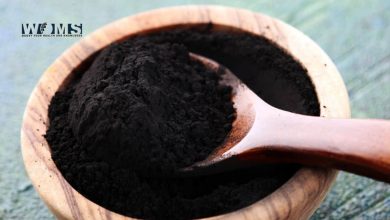Understanding Healthy Inflammatory Response: Key Influences and Supportive Strategies

Maintaining a healthy inflammatory response is vital for long-term well-being and resilience against chronic conditions. Inflammation, when functioning correctly, is the body’s natural mechanism to repair tissue damage and ward off harmful pathogens. However, when this response becomes unbalanced—either excessively heightened or chronically activated—it can lead to health complications ranging from joint discomfort to cardiovascular and neurological issues. To support this delicate system, it’s essential to understand the many lifestyle and environmental influences that impact inflammation and adopt strategies that promote balance and health.
Dietary Impact on Inflammation
The foods we consume daily can significantly influence inflammation in the body. Diets high in refined sugars, processed foods, artificial additives, and trans fats have been linked to an overactive inflammatory response. These foods may disrupt gut health, promote oxidative stress, and lead to metabolic imbalances that fuel chronic inflammation.
Conversely, adopting an anti-inflammatory diet rich in whole foods can play a powerful role in restoring balance. Omega-3 fatty acids, found in fatty fish like salmon, flaxseed, and chia seeds, help regulate immune responses. Fruits and vegetables, particularly leafy greens, berries, and cruciferous vegetables, are rich in antioxidants and phytonutrients that naturally counteract inflammation. Nuts, seeds, olive oil, and spices such as turmeric and ginger also provide nutritional support to help the body respond to inflammation in a healthy way.
The Role of Exercise in Inflammatory Health
Regular physical activity is a cornerstone of inflammation management. Engaging in at least 30 minutes of moderate exercise most days of the week helps reduce inflammatory markers and supports immune regulation. Aerobic exercises, such as swimming, cycling, and brisk walking, enhance circulation and stimulate the lymphatic system. Strength training, yoga, and stretching also play key roles in keeping joints healthy and reducing tension-related inflammation.
However, overtraining or exercising without adequate recovery can have the opposite effect. It’s essential to listen to your body, incorporate rest days, and ensure sufficient hydration and nutrition to support muscle recovery and minimize stress-induced inflammation.
Sleep and the Inflammatory Response
Sleep is a restorative process that supports numerous biological systems, including inflammation regulation. Chronic sleep deprivation or irregular sleep patterns can elevate inflammatory biomarkers such as C-reactive protein (CRP). Over time, this can impair immune function and increase susceptibility to illness.
To encourage restorative sleep, aim for 7 to 9 hours of uninterrupted rest each night. Implementing sleep hygiene practices—such as limiting screen time before bed, maintaining a cool, dark sleep environment, and following a consistent bedtime schedule—can make a meaningful difference. For some individuals, natural sleep aids like magnesium or herbal teas can further enhance sleep quality.
Environmental and Emotional Influences
Environmental toxins and emotional stress also contribute significantly to inflammatory imbalance. Prolonged exposure to pollution, synthetic chemicals, and allergens can overstimulate the immune system. Likewise, chronic psychological stress raises cortisol levels, which, when elevated long-term, can amplify inflammation throughout the body.
To mitigate these effects, consider incorporating mindfulness techniques like meditation, deep breathing, or journaling into your routine. Limiting exposure to indoor pollutants with air purifiers and choosing natural household and personal care products can also help reduce your overall inflammatory load.
Natural and Nutritional Supplementation
In addition to lifestyle measures, many individuals find support through targeted supplementation. Omega-3 fatty acids from high-quality fish oil supplements remain one of the most researched and effective tools for supporting a balanced inflammatory response. Curcumin (from turmeric), resveratrol, boswellia, green tea extract, and quercetin are other compounds that have been studied for their anti-inflammatory properties.
For those looking to address neurological inflammation specifically, certain supplements to detox brain tissues—such as glutathione precursors, alpha-lipoic acid, and milk thistle—may offer additional support. These substances work at the cellular level to reduce oxidative stress and support detoxification pathways that help maintain cognitive clarity and brain health.
Monitoring and Personalized Strategies
Ongoing health assessments, including inflammation marker screenings, can provide valuable insights into your body’s internal environment. Working with healthcare professionals such as integrative physicians, dietitians, or functional medicine practitioners can help tailor a plan that fits your unique needs. This approach might include food sensitivity testing, gut microbiome analysis, or hormone evaluations—all of which play a role in chronic inflammation.
Creating a Sustainable Anti-Inflammatory Lifestyle
Supporting a healthy inflammatory response isn’t about one single change; it’s about consistent, holistic habits. By integrating a nutrient-rich diet, regular physical activity, quality sleep, stress reduction practices, and mindful environmental choices, you can significantly reduce the risk of chronic inflammation and its associated health concerns.
Incorporating targeted supplements under professional guidance can further amplify these efforts, especially when specific needs arise. As research into inflammation and immunity continues to evolve, staying informed and proactive ensures you remain in the best possible position to support your body’s healing and defense mechanisms.





